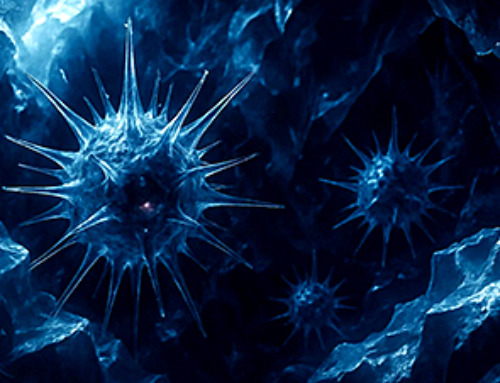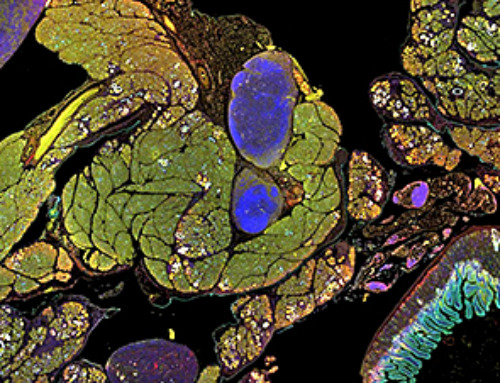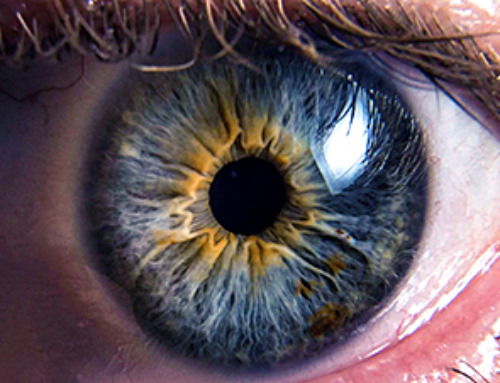What happens in the human brain when we learn from positive and negative experiences? To help answer that question and better understand decision-making and human behavior, scientists are studying dopamine.
Now, a new study from researchers at Wake Forest University School of Medicine published Dec. 1 in Science Advances shows that dopamine release in the human brain plays a crucial role in encoding both reward and punishment prediction errors. This means that dopamine is involved in the process of learning from both positive and negative experiences, allowing the brain to adjust and adapt its behavior based on the outcomes of these experiences.
“Previously, research has shown that dopamine plays an important role in how animals learn from ‘rewarding’ (and possibly ‘punishing’) experiences. But, little work has been done to directly assess what dopamine does on fast timescales in the human brain,” said Kenneth T. Kishida, Ph.D., associate professor of physiology and pharmacology and neurosurgery at Wake Forest University School of Medicine.
“This is the first study in humans to examine how dopamine encodes rewards and punishments and whether dopamine reflects an ‘optimal’ teaching signal that is used in today’s most advanced artificial intelligence research.”
For the study, researchers on Kishida’s team utilized fast-scan cyclic voltammetry, an electrochemical technique, paired with machine learning, to detect and measure dopamine levels in real-time (i.e., 10 measurements per second). However, this method is challenging and can only be performed during invasive procedures such as deep-brain stimulation (DBS) brain surgery. DBS is commonly employed to treat conditions such as Parkinson’s disease, essential tremor, obsessive-compulsive disorder and epilepsy.
Kishida’s team collaborated with Atrium Health Wake Forest Baptist neurosurgeons Stephen B. Tatter, M.D., and Adrian W. Laxton, M.D., who are also both faculty members in the Department of Neurosurgery at Wake Forest University School of Medicine, to insert a carbon fiber microelectrode deep into the brain of three participants at Atrium Health Wake Forest Baptist Medical Center who were scheduled to receive DBS to treat essential tremor.
While the participants were awake in the operating room, they played a simple computer game. As they played the game, dopamine measurements were taken in the striatum, a part of the brain that is important for cognition, decision-making, and coordinated movements.
During the game, participants’ choices were either rewarded or punished with real monetary gains or losses. The game was divided into three stages in which participants learned from positive or negative feedback to make choices that maximized rewards and minimized penalties. Dopamine levels were measured continuously, once every 100 milliseconds, throughout each of the three stages of the game.
“We found that dopamine not only plays a role in signaling both positive and negative experiences in the brain, but it seems to do so in a way that is optimal when trying to learn from those outcomes. What was also interesting, is that it seems like there may be independent pathways in the brain that separately engage the dopamine system for rewarding versus punishing experiences. Our results reveal a surprising result that these two pathways may encode rewarding and punishing experiences on slightly shifted timescales separated by only 200 to 400 milliseconds in time,” Kishida said.
Kishida believes that this level of understanding may lead to a better understanding of how the dopamine system is affected in humans with psychiatric and neurological disorders. Kishida said additional research is needed to understand how dopamine signaling is altered in psychiatric and neurological disorders.
“Traditionally, dopamine is often referred to as ‘the pleasure neurotransmitter,”‘ Kishida said. “However, our work provides evidence that this is not the way to think about dopamine. Instead, dopamine is a crucial part of a sophisticated system that teaches our brain and guides our behavior. That dopamine is also involved in teaching our brain about punishing experiences is an important discovery and may provide new directions in research to help us better understand the mechanisms underlying depression, addiction, and related psychiatric and neurological disorders.”
More information: Paul Sands et al, Sub-second fluctuations in extracellular dopamine encode reward and punishment prediction errors in humans, Science Advances (2023). DOI: 10.1126/sciadv.adi4927. www.science.org/doi/10.1126/sciadv.adi4927
News
Studies detail high rates of long COVID among healthcare, dental workers
Researchers have estimated approximately 8% of Americas have ever experienced long COVID, or lasting symptoms, following an acute COVID-19 infection. Now two recent international studies suggest that the percentage is much higher among healthcare workers [...]
Melting Arctic Ice May Unleash Ancient Deadly Diseases, Scientists Warn
Melting Arctic ice increases human and animal interactions, raising the risk of infectious disease spread. Researchers urge early intervention and surveillance. Climate change is opening new pathways for the spread of infectious diseases such [...]
Scientists May Have Found a Secret Weapon To Stop Pancreatic Cancer Before It Starts
Researchers at Cold Spring Harbor Laboratory have found that blocking the FGFR2 and EGFR genes can stop early-stage pancreatic cancer from progressing, offering a promising path toward prevention. Pancreatic cancer is expected to become [...]
Breakthrough Drug Restores Vision: Researchers Successfully Reverse Retinal Damage
Blocking the PROX1 protein allowed KAIST researchers to regenerate damaged retinas and restore vision in mice. Vision is one of the most important human senses, yet more than 300 million people around the world are at [...]
Differentiating cancerous and healthy cells through motion analysis
Researchers from Tokyo Metropolitan University have found that the motion of unlabeled cells can be used to tell whether they are cancerous or healthy. They observed malignant fibrosarcoma cells and [...]
This Tiny Cellular Gate Could Be the Key to Curing Cancer – And Regrowing Hair
After more than five decades of mystery, scientists have finally unveiled the detailed structure and function of a long-theorized molecular machine in our mitochondria — the mitochondrial pyruvate carrier. This microscopic gatekeeper controls how [...]
Unlocking Vision’s Secrets: Researchers Reveal 3D Structure of Key Eye Protein
Researchers have uncovered the 3D structure of RBP3, a key protein in vision, revealing how it transports retinoids and fatty acids and how its dysfunction may lead to retinal diseases. Proteins play a critical [...]
5 Key Facts About Nanoplastics and How They Affect the Human Body
Nanoplastics are typically defined as plastic particles smaller than 1000 nanometers. These particles are increasingly being detected in human tissues: they can bypass biological barriers, accumulate in organs, and may influence health in ways [...]
Measles Is Back: Doctors Warn of Dangerous Surge Across the U.S.
Parents are encouraged to contact their pediatrician if their child has been exposed to measles or is showing symptoms. Pediatric infectious disease experts are emphasizing the critical importance of measles vaccination, as the highly [...]
AI at the Speed of Light: How Silicon Photonics Are Reinventing Hardware
A cutting-edge AI acceleration platform powered by light rather than electricity could revolutionize how AI is trained and deployed. Using photonic integrated circuits made from advanced III-V semiconductors, researchers have developed a system that vastly [...]
A Grain of Brain, 523 Million Synapses, Most Complicated Neuroscience Experiment Ever Attempted
A team of over 150 scientists has achieved what once seemed impossible: a complete wiring and activity map of a tiny section of a mammalian brain. This feat, part of the MICrONS Project, rivals [...]
The Secret “Radar” Bacteria Use To Outsmart Their Enemies
A chemical radar allows bacteria to sense and eliminate predators. Investigating how microorganisms communicate deepens our understanding of the complex ecological interactions that shape our environment is an area of key focus for the [...]
Psychologists explore ethical issues associated with human-AI relationships
It's becoming increasingly commonplace for people to develop intimate, long-term relationships with artificial intelligence (AI) technologies. At their extreme, people have "married" their AI companions in non-legally binding ceremonies, and at least two people [...]
When You Lose Weight, Where Does It Actually Go?
Most health professionals lack a clear understanding of how body fat is lost, often subscribing to misconceptions like fat converting to energy or muscle. The truth is, fat is actually broken down into carbon [...]
How Everyday Plastics Quietly Turn Into DNA-Damaging Nanoparticles
The same unique structure that makes plastic so versatile also makes it susceptible to breaking down into harmful micro- and nanoscale particles. The world is saturated with trillions of microscopic and nanoscopic plastic particles, some smaller [...]
AI Outperforms Physicians in Real-World Urgent Care Decisions, Study Finds
The study, conducted at the virtual urgent care clinic Cedars-Sinai Connect in LA, compared recommendations given in about 500 visits of adult patients with relatively common symptoms – respiratory, urinary, eye, vaginal and dental. [...]





















